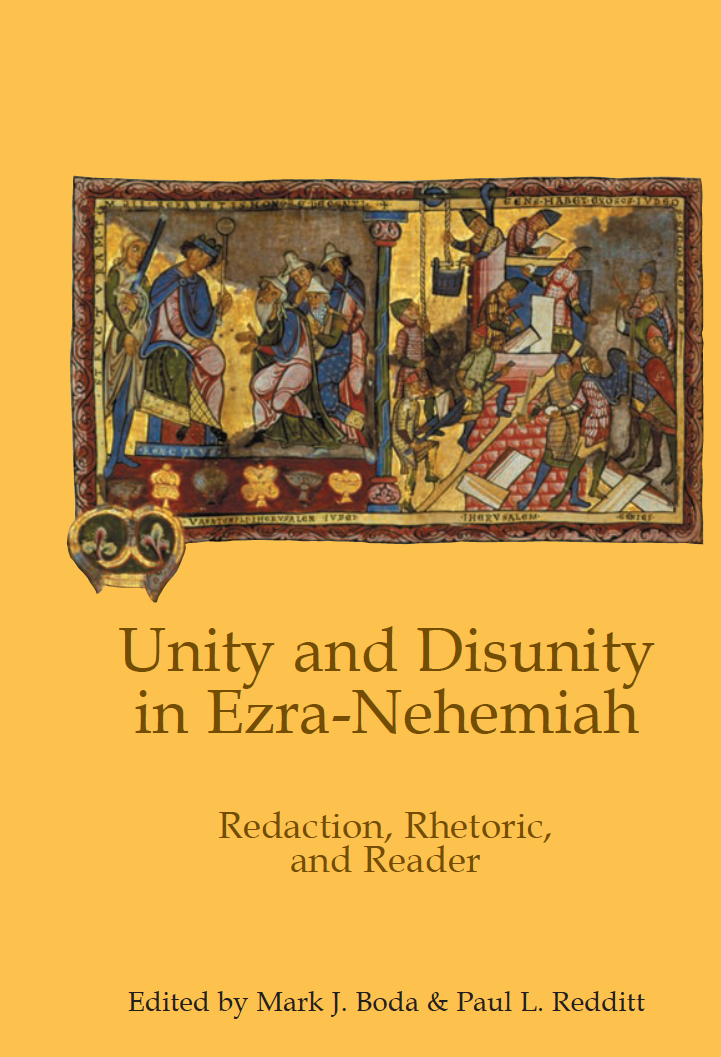Unity and Disunity in Ezra-Nehemiah: Redaction, Rhetoric, and Reader
Original price was: £55.00.£25.00Current price is: £25.00.
Here scholars from around the globe (Canada, Finland, Germany, Guatemala, Israel, Korea, the Netherlands, United Kingdom, United States) showcase current scholarly explanations for the final shape of this literary complex known as Ezra —Nehemiah. Fourteen scholars present their approach to the unity or disunity of this literature employing research methodologies that range from the diachronic to the synchronic.
Until the late 1960s the scholarly consensus was that Chronicles —Ezra —Nehemiah was a single, unified literary work. Then arguments began to be mounted for treating Chronicles as a distinct composition, and the majority of scholars were swayed by these arguments, though others retained the older consensus view. In recent years, some scholars have begun to suggest that Ezra and Nehemiah are distinct literary entities.
This new debate is the occasion for the present volume. Here scholars from around the globe (Canada, Finland, Germany, Guatemala, Israel, Korea, the Netherlands, United Kingdom, United States) showcase current scholarly explanations for the final shape of this literary complex known as Ezra —Nehemiah. Fourteen scholars present their approach to the unity or disunity of this literature employing research methodologies that range from the diachronic to the synchronic.
Critical responses to this emerging research are provided by three reviewers (Joseph Blenkinsopp, Tamara Eskenazi and Hugh Williamson) whose work laid the foundation in earlier decades for much of the discussion today. The result is a rich conversation which provides an enlightening resource for the study of these biblical books in particular as well as for reflection on the impact of one’s interpretive framework on the study of ancient literature in general.
Additional information
| table of contents | INTRODUCTION Mark J. Boda and Paul L. Redditt THE FUNCTION OF COVENANT ACROSS EZRA–NEHEMIAH Richard J. Bautch REDACTION IN THE BOOK OF NEHEMIAH: A FRESH PROPOSAL Mark J. Boda LEAVE NEHEMIAH ALONE: NEHEMIAH’S ‘TALES’ AND FIFTH-CENTURY BCE HISTORIOGRAPHY Margaret Cohen WHO WROTE EZRA–NEHEMIAH—AND WHY DID THEY? Lisbeth S. Fried HOLINESS AND PURITY IN EZRA–NEHEMIAH Hannah K. Harrington THE CRIES OF JERUSALEM: ETHNIC, CULTIC, LEGAL, AND GEOGRAPHIC BOUNDARIES IN EZRA–NEHEMIAH David Janzen SCRUTINIZING THE CONCEPTUAL UNITY OF EZRA AND NEHEMIAH Christiane Karrer-Grube NEHEMIAH WITHOUT EZRA? Kyung-jin Min THE RESTORATION OF ISRAEL BY GOD’S WORD IN THREE EPISODES FROM EZRA–NEHEMIAH Douglas J.E. Nykolaishen THE DISUNITY OF EZRA–NEHEMIAH Juha Pakkala THE DEPENDENCE OF EZRA–NEHEMIAH ON 1 AND 2 CHRONICLES Paul L. Redditt NEHEMIAH 8 AND THE AUTHORITY OF TORAH IN EZRA–NEHEMIAH Titus Reinmuth CONTEXTUALIZATIONS OF EZRA–NEHEMIAH Armin Siedlecki SEEKING, FINDING AND WRITING IN EZRA–NEHEMIAH Jacob L. Wright RESPONSES EZRA–NEHEMIAH: UNITY OR DISUNITY? Joseph Blenkinsopp UNITY AND DISUNITY IN EZRA–NEHEMIAH: RESPONSES AND REFLECTIONS Tamara Cohn Eskenazi MORE UNITY THAN DIVERSITY H.G.M. Williamson |
|---|---|
| author | |
| authors | |
| editors | |
| isbn | |
| list price (paperback) | |
| page extent | |
| publication | |
| publication date | |
| series | |
| table of contenta | |
| version |

